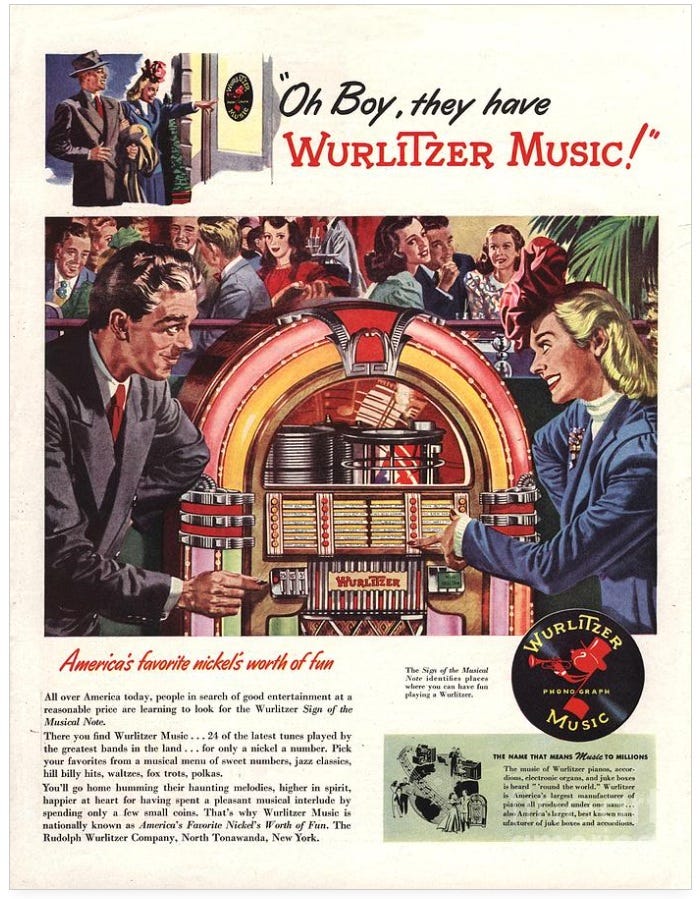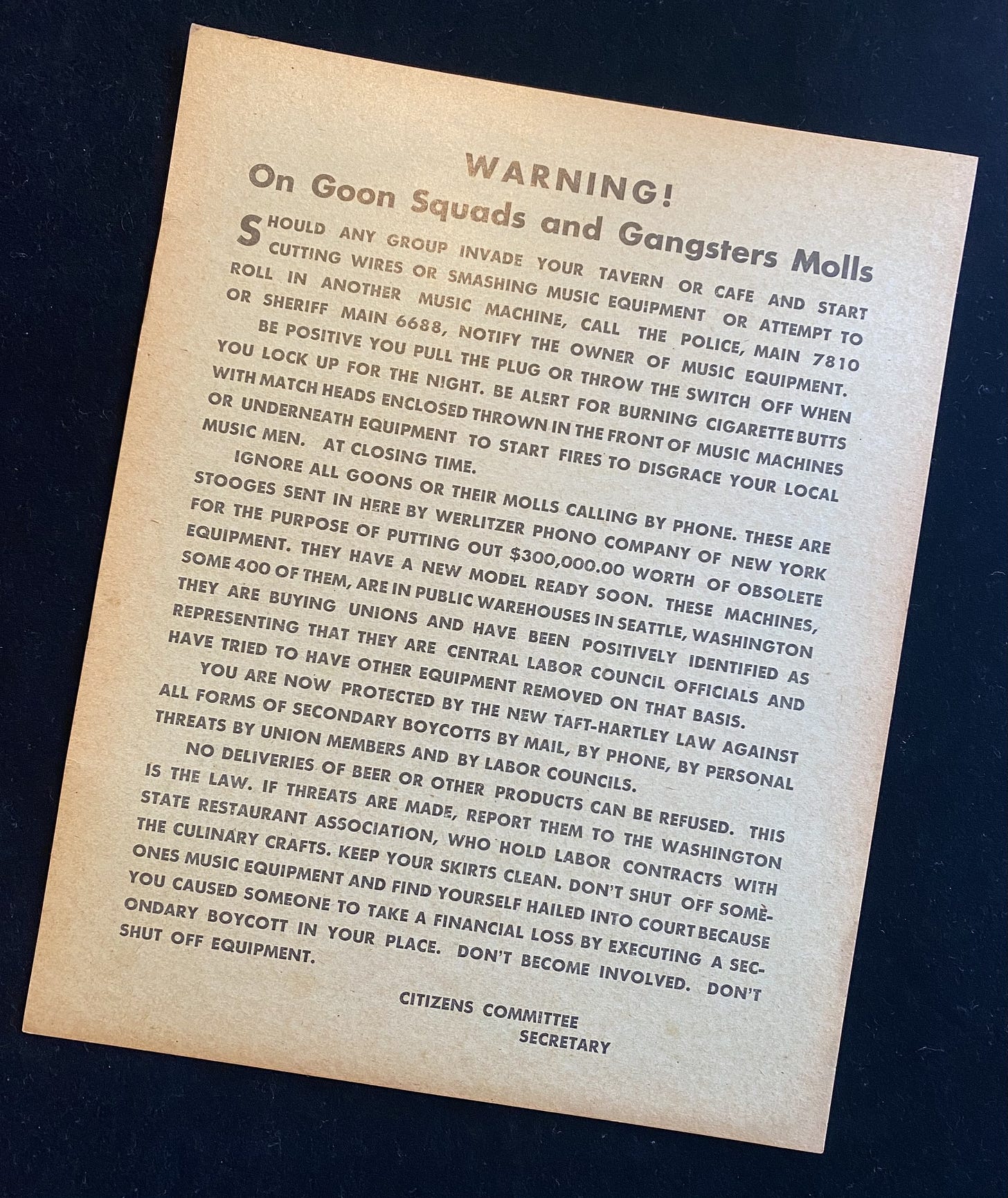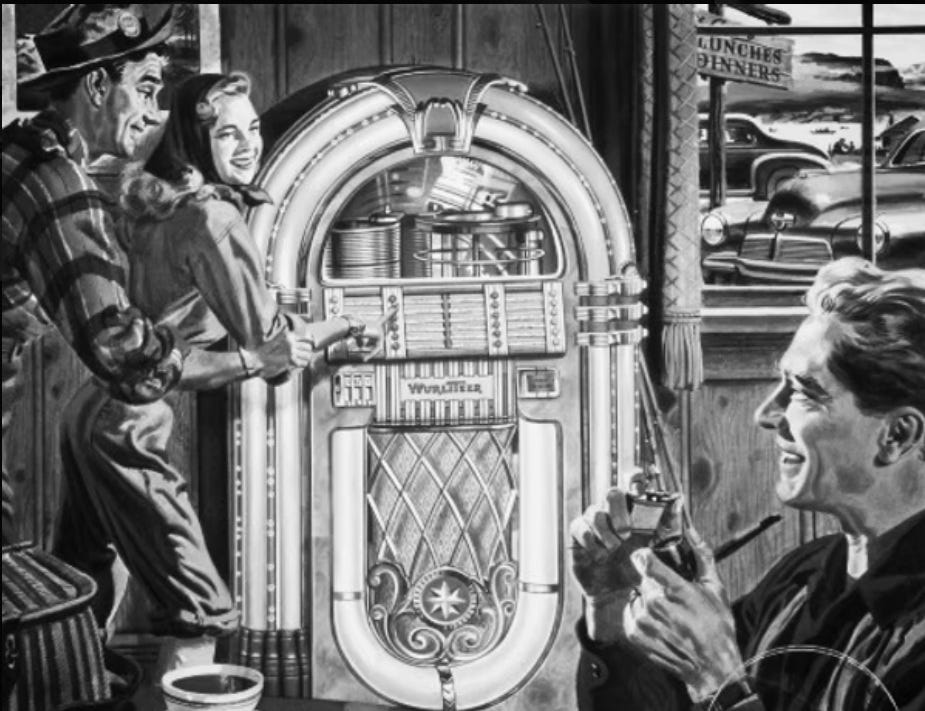Another found object with ties to criminal activity from Seattle’s past. This is a printed warning that was posted throughout Seattle-area taverns in the 1940s and ‘50s. At the time, pinball was considered to be a form of gambling played as a game of chance. Likewise, jukeboxes were a common fixture in diners, bars, and clubs, bringing in large sums of money for an ephemeral product (music), making them ideally well-suited for money laundering. As a result, the early pinball and jukebox industry had deep ties to organized crime.
In the case of jukeboxes, manufacturers did not directly sell these coin-operated music machines to taverns and clubs, rather they were sold to regional distribution companies that controlled local “routes,” or groups of venues within a certain geographical area. This type of business model encouraged various mafia groups to take over.
Here in the Seattle area, William Foreman – who opened some of the area’s first drive-in theaters later became a movie theater magnate – operated one of the earliest pinball and jukebox “routes” in the Bremerton area. As with most route operators, he did not report all his earnings and would later serve time in prison for tax evasion. The infamous Colacurcio brothers also operated several pinball and jukebox routes in the 1950s and would later be implicated in several bombings connected to the so-called Seattle Pinball Wars.
This printed notice warns about “goon squads” (i.e. the mafia) and “gangster’s molls” (i.e. the girlfriends of said mafia members, and/or prostitutes who worked for them), and specifically mentions the Wurlitzer Company of New York. At the time, the Jewish mobster Meyer Lansky operated a large crime racket/gambling empire in New York that was said to control “every Wurlitzer jukebox in the New York area.” In fact, Lansky actually negotiated a deal with the Wurlitzer jukebox company that allowed him to become a sole distributor for the company’s machines and by the late 1940s (when this notice was printed) he controlled most of the “routes” from coast to coast.
It is therefore assumed that this warning was posted in response to Lanksy’s late-1940s takeover of the jukebox racket. The notice also advises its readers to be on the lookout for cigarettes and/or books of matches underneath any equipment. This is a reference to the popular use of “match bombs” in which an opened book of matches would be placed underneath a jukebox machine and then a lit cigarette set on top of the matches. As the tip of the cigarette burned down it would eventually ignite the book of matches, causing a flare-up underneath the machine which usually burned up important wires and electrical components. This would either destroy the machine or at least render it inoperable until a costly repair could be made. Cigarette bombs were a popular intimidation tactic for any tavern owners who refused to carry machines from certain distributors.
For more about the illegal pinball and jukebox trade here in the local area and how it operated, read my post about The Seattle Pinball Wars.






